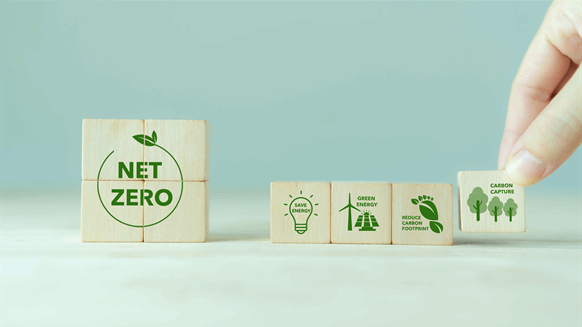Nigeria’s sovereign wealth fund sees the potential for a 10-fold expansion of a carbon credit program with Vitol SA in a company currently valued at $50 million, according to its chief executive.
Nigeria’s Sovereign Investment Authority, which manages up to $5 billion in assets, formed a $50 million venture with Vitol in April known as CarbonVista. The company announced an agreement to sell the credits to a unit of Saudi Arabia’s sovereign wealth fund this month.
The pact sees the sovereign wealth funds of two of the world’s biggest oil producers partner with one of the biggest oil traders to mitigate the climate-warming effects of burning fossil fuels.
The program is part of the mandate of the NSIA. The CEO, Aminu Umar-Sadiq, said as the custodian of Nigeria’s money, his organization must invest in sustainable economic development.
“I want to say half a billion, but that depends on how we do with the $50 million program,” he said in an interview, referring to the project’s potential, adding that CarbonVista plans to focus on stoves efficient firewood, water purification and reforestation projects to obtain credits.
African countries, from Zimbabwe and Malawi to Gabon and Kenya, are looking to benefit more from offset production. Each carbon credit represents one tonne of climate-warming carbon dioxide or its equivalent removed from the atmosphere or prevented from entering it in the first place.
Under the initial agreement, NSIA contributed $20 million and Vitol contributed $30 million. Vitol declined to comment.
The company plans to get a clean kitchen project, which will use more efficient wood stoves than those currently used to reduce deforestation, up and running in the third quarter, according to Umar-Sadiq. A deal is being negotiated with a stove manufacturer to set up a plant in the northern city of Kano, and CarbonVista may take a stake in the company to secure the deal, he said, declining to identify the company.
“They are in Kenya and we are trying to bring them to Nigeria for installation,” Umar-Sadiq said. “They’re very, very happy to do it,” he said.
The water purification and reforestation plants will be built later.
Although CarbonVista has agreed to sell the carbon credits it produces to Regional Voluntary Carbon Market Co., a unit of Saudi Arabia’s Public Investment Fund, other buyers may need to be found in the future, Umar-Sadiq said. As a result of its work, the NSIA has been asked to lead the African Sovereign Investors Forum’s Climate and Sustainability Working Group, he said.
In addition to carbon credits, the NSIA aims to establish a renewable energy platform that will use a 10 megawatt solar pilot plant in Kano to model similar plants elsewhere in the country. The platform may also see the formation of a $50 million equity company with a partner that would eventually produce solar panels and mini-grids, he said.
In addition to green energy, the sovereign wealth fund is investing $100 million in an ammonia plant with Morocco’s OCP SA to develop a facility in Ikot Abasi in southern Nigeria that could cost up to $1.6 billion of dollars OCP will contribute about $200 million and the rest will have to be raised in the form of equity and debt, Umar-Sadiq said.
–With the help of Emele Onu and Archie Hunter.


